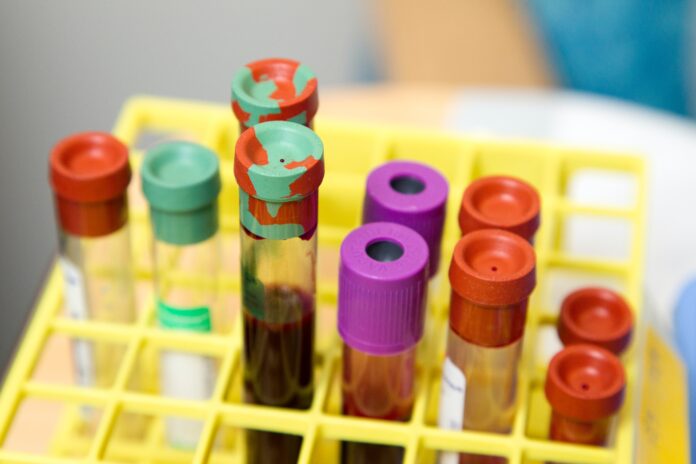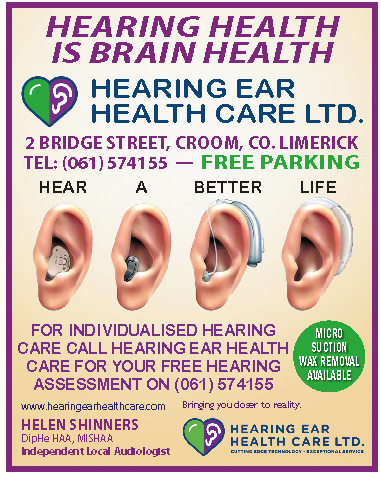
- New research undertaken by Cancer Trials Ireland shows that 73% agree that the COVID-19 pandemic has highlighted the importance of clinical trials.
- 77% of participants in the research study affirmed that clinical trials are a good idea, rising to 87% amongst those who have had a cancer diagnosis.
- New research undertaken by Cancer Trials Ireland shows that 80% of people in Ireland understand the importance of clinical trials, an increase of 7% since 2009.
- New trial aimed at high-risk prostate cancer patients to open in Ireland in January 2021.
NEW research undertaken by Cancer Trials Ireland (and Spark Market Research) has shown that 73% of the public agree that the COVID-19 pandemic has highlighted the importance of clinical trials.
77% of participants in the research study affirmed that clinical trials are a good idea, rising to 87% amongst those who have had a cancer diagnosis.
80% of those surveyed claimed to have an understanding of the clinical trial process (an increase of 7% since a similar study in 2009), rising to 87% for those who have had a cancer diagnosis.
1 in 2 people would now be open to participating in a trial themselves, with the majority of those respondents willing to participate being motivated to do so in order to contribute to the advancement of treatments and therapies.
Cancer Trials Ireland, in partnership with the wider research community, are calling for the streamlining of the clinical trial approval process in Ireland.
Eibhlín Mulroe, CEO of Cancer Trials Ireland, said: “The environment that we are living in today, with unprecedented levels of media coverage on clinical trials worldwide due to the COVID-19 pandemic, has undoubtedly brought about a wider understanding of the process behind the development of new treatments and therapies. It is very encouraging for us to see a considerable increase in the number of people that would be open to taking part in trials since 2009.
There is a clear appreciation for how this process allows us to develop new and innovative treatments that could go on to save lives and reduce the burden of cancer for future generations.”
The research also revealed that 63% of people being aware of Cancer Trials Ireland, attributed to the work of the late Pat Smullen, who raised €2.6m for pancreatic research in 2019.
Meanwhile, last month Cancer Trials Ireland launched a petition calling for the Minister for Health and Department of Health to expedite amending and enacting all relevant legislation for Centralised National Research Ethics and increase ethical review capacity for all health research in Ireland. The petition has had almost 600 signatures to date.
58% of the public recognise that trials undergo an ethical review process (up 8%1) and 62% agree trials have many safeguards in order to minimise risks.[i]
“We are calling on the minister to expedite relevant legislation and centralise ethical approval urgently, by establishing one harmonised, central location to manage the process. Since ethics reviews were introduced at the turn of the century, the number of research applications seeking review has grown and grown while capacity to review them has not changed.
“If we can’t put a definite timeline on how long the approval process takes, that impacts planning – and ultimately makes Ireland a less attractive location for research,” said Eibhlín Mulroe.
Clinical Lead with Cancer Trials Ireland, Professor Ray McDermott said: “The critical importance of clinical trials has never been clearer. Our funders – including the Health Research Board, the Irish Cancer Society – have been crucial to this work. For people living with cancer in Ireland, access to trials can offer the opportunity to access treatments when the standard treatments are not working.”
Seven in ten people (72%) agree that trials provide patients with access to treatments not otherwise available, and one in six people (15%) would participate in a trial to access such treatments.
“It is very heartening to see such an acute understanding of the purpose of clinical trials among the public, because they are hitting the nail on the head – the number one reason doctors open clinical trials is to access the newest treatments for their patients.
The fact that 27% strongly agree with that, and 15% cite it as a reason for participating in a trial shows people have a strong grasp of that facts.”
With new treatments and better patient outcomes at the forefront of the current and future trials being undertaken, in January 2021, a new clinical trial aimed at high-risk prostate cancer patients (DASL-HiCaP) will open in Ireland.
Typically, high-risk prostate cancer is treated through a combination of treatments, namely: hormone deprivation, radiotherapy and the option of surgery, chemotherapy, or both.
This trial is designed to see if adding a new well-tolerated hormonal therapy can help standard therapy and prevent high risk localised disease from spreading to other parts of the body. The trial will open in up to eight hospital sites around Ireland, with a target of recruiting at least 80 patients.
The hope is that DASL-HiCaP might show new ways of improving outcomes for men with prostate cancer. More than 3,300 men are diagnosed with prostate cancer each year in Ireland. This means that 1 in 7 men will be diagnosed with prostate cancer during their lifetime.
Irish Cancer Society Director of Research Dr Robert O’Connor said: “We are delighted to be able to support this latest important project by Cancer Trials Ireland. As we close off another year of raising awareness around prostate cancer in November it is great to see that men in Ireland are getting access to world class research and the hope of even better outcomes.
“We are happy to see a shift in public awareness around these important topics and a focus on supporting one another in order to develop more positive outcomes for anyone living with cancer.”
Vance Harris, who was diagnosed with prostate cancer nine years ago and is supporting this campaign and the work of Cancer Trials Ireland:
“I am proud to have taken part in two cancer trials which has prolonged my life and given me time back. I have never felt like I am just a number- the staff and care I have received has been amazing. People who take part in trials are paving the way for new cancer treatments to become available in the future and I am incredibly grateful to be part of such a positive legacy.”
Cancer Trials Ireland will be opening a further five haematology cancer trials in 2021, that will collectively recruit up to 181 patients with blood cancers. Recently Cancer Trials Ireland opened a new trial for pancreatic cancer (recruiting up to 43 patients) while the DASL-HiCaP described above will recruit up to 80 patients.
In all, more than 300 cancer patients could have the options of new treatments next year, with further announcements on breast cancer trials expected early in the new year.
The Just Ask 2020 campaign is the fourth iteration of the Just Ask campaign, run by Cancer Trials Ireland each year since 2017. Just Ask 2020 is supported by unrestricted grants from Pfizer Healthcare Ireland; Novartis; AbbVie; MSD; Roche; and Bayer.
Other findings at a glance
- 60% would participate in a non-drug study.
- 70% of respondents would be willing to take part in a trial if they were very ill was
- People are also more willing to donate blood to be used for clinical research (76% – up 6% since 2009) – and we see a corresponding drop in people saying they would NOT be willing to donate blood for research. 18% in 2009 vs 9% now.
- People are more willing to share personal medical information if it is kept confidential (72% – up 7% since 2009) – again we see a corresponding drop among people who were unwilling to share their personal medical information from 19% in 2009 to 11% today.
- 77% think clinical trials are a good idea – with this sentiment higher amongst those who have an experience of cancer.
- 72% understand clinical trials are when drugs/medicines are tested on humans, rising from 60% in 2009.
- About one in five (22%) expressed willingness to participate in a trial as it would mean ‘taking an active role in my own health if I was ill’
- Side effects were cited as the biggest reason for not participating in a trial (76% of those who would not – or 18% overall).
For further information on cancer trials in Ireland visit cancertrials.ie or follow the conversation on Twitter @cancertrials_ie.









